I work in the oil and gas industry and find myself in airports all over the world. It's often I get asked what I do for a living.
The conversation is pretty simple. It usually goes something like this:
"What are you doing in London?"
"Passing through back to Texas."
"What do you do?"
"Offshore Oil field"
"Oh! Diving?"
I understand why this is a common question. Offshore to most people conjures up images of the ocean and their brain associates a water activity with it.
But I've received this question so much that I'd thought I would address what divers actually do down there in the deep mysterious world under the rig.
From what I've learned there are two different divers: tenders and welders.
Tenders do exactly as their title reads; they tend to anything not welding. This could be inspection or maintenance.
Here is a tender

As you can see, he's maintaining a pipe. I actually know what he's doing; he's placing what's called a 'wedding' ring. Without getting too technical, a wedding ring is a type of mile marker placed on the pipe so that magnetics can pick it up later.
Here is another type of tender known as an NDT or Non-destructive tester. These guys find cracks and such by testing the metal with various equipment. This particular diver is performing a test called magnetic particle testing whereby he places magnets on the pipe at various locations. Then he rubs iron dust all over the pipe and the magnets then suck in the dust. If a line forms in the magnetic dust, you have a crack.
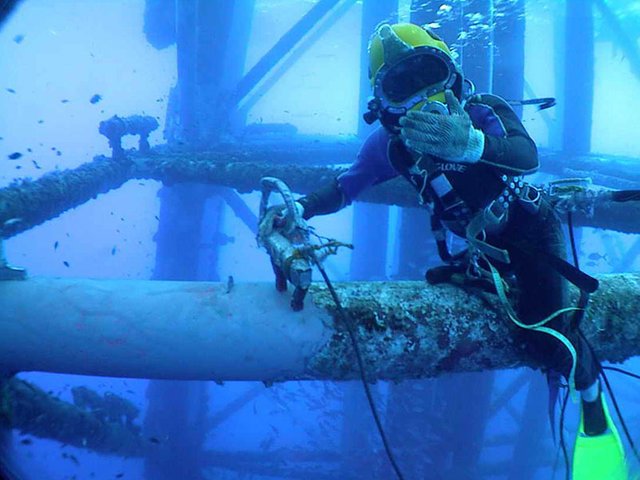
Here is an underwater welder. His job is very dangerous and extreme caution is always taken when the welders are below deck.
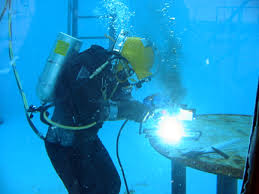
To give a picture of what these guys fix, here is a picture of various rigs from a side view. Some of these are being phased out of the fleet and replaced with newer technology. But this will give you an idea of what they deal with.
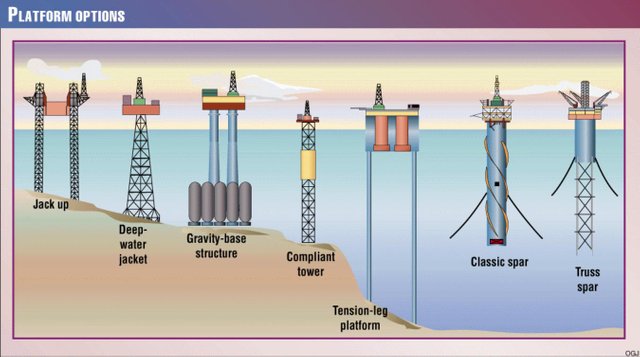
Pretty much anything under the surface of the water is what they work on.
Last but not least, here is a picture of a large jack up rig with many legs that demands more divers:
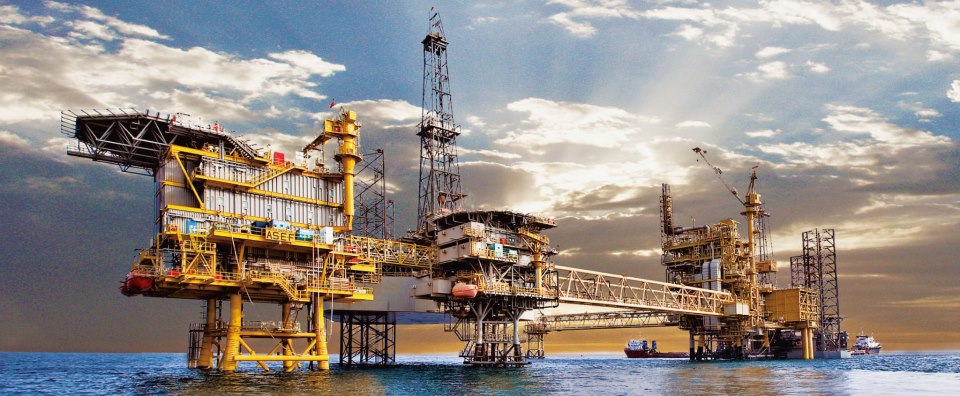
A few tidbits about becoming one of these divers. Most of these guys are prior Navy and went to diving school while in the service. The other guys went to private diving schools on the gulf.
Also, if you do this, do it young. It's nearly impossible to get insured after the age of 35. Most commercial dive schools won't take you. The reason is that commercial diving is hard on the body.
I've seen some of the supervisors in their 40's and they look rough. Years underwater, the bends, nitrogen in the blood, storms, etc. took its toll on these guys.
But they are a fun bunch of adrenaline junkies that I enjoy drinking with.
'Till next time,
John
P.S. Here's a fun picture from the Leg camera. Sometimes the Honu's (turtles) get curious what's going on. It's also not unusual for dolphins to hang out with the divers.
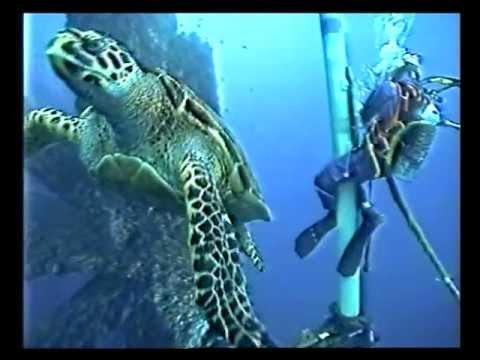
If you are interested in the world of offshore companies and want to dive deeper, I highly recommend you visit https://www.offshorecorptalk.com/forums/offshore-company.13/ This forum is a real discovery for anyone looking for verified information, discussions and advice from experts. Especially useful if you want to start a diving business, be it renting equipment, organizing tours or other services. Here you will find answers to complex questions about jurisdictions, taxes and regulations, which are especially important for companies in the international environment. Great place for beginners and professionals!
Downvoting a post can decrease pending rewards and make it less visible. Common reasons:
Submit